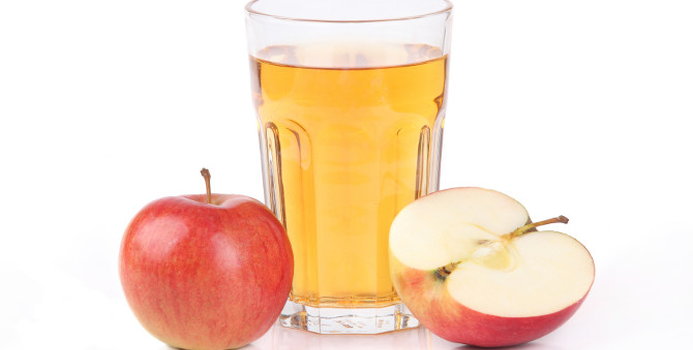Concentrate juices, otherwise known as juice concentrates, are widely available and nutritionally similar to regular juice when prepared properly. However, not all concentrated juices are created equal. Just like regular juices, some juice concentrates are healthier for you than others.
What Are Juice Concentrates?
Juice concentrates are generally frozen, concentrated forms of juices and juice drink blends. To properly prepare concentrated juice, just add the amount of water listed on the concentrate instruction label. Juice concentrates can be kept frozen until you're ready to use them, which increases the amount of time the juice will stay fresh after purchasing it. Juice concentrates are easy to prepare, but may be slightly less convenient than buying regular ready-to-drink juice.
Which Ones Are Healthy?
To avoid added sugars, which are often present in mixed juice drink blends, look for juice concentrates that say they are 100-percent juice on the label. Read the ingredient list to make sure fruit juice is on it, but sugar and high-fructose corn syrup are not. Juice concentrates that are called juice cocktails or juice drinks generally contain added sugar and are not 100-percent fruit juice.
Calorie Content
When prepared with water, 100-percent juice concentrates contain the same number of calories as regular juices. For example, Welch's 100-percent grape juice frozen concentrate contains 140 calories per cup when prepared. However, in its concentrated form the same grape juice contains 140 calories in a 1/4-cup portion. If you want to further reduce the calorie content of your prepared juice concentrate, add more water than what is recommended on the juice concentrate label.
Potential Concerns
While 100-percent fruit juice concentrate that is properly prepared is generally rich in vitamin C and can be counted as a serving from the fruit food group, drinking too much juice can be problematic. Juice, even 100-percent fruit juice, contains natural sugar but provides few other essential nutrients besides vitamin C. Juice lacks fiber and other vitamins found in fresh fruits. Kids who drink too much juice may be missing out on essential nutrients like calcium, protein and fiber. Therefore, the Dietary Guidelines for Americans 2010 recommends getting 2 cups of fruit, fruit juice, or a combination of the two daily when eating 2,000 calories per day.

An experienced health, nutrition and fitness writer, Erin Coleman is a registered and licensed dietitian and holds a dietetics degree from the University of Wisconsin-Madison. She also has worked as a clinical dietitian and health educator in outpatient settings. Erin's work is published on popular health websites, such as TheNest.com and JillianMichaels.com.



